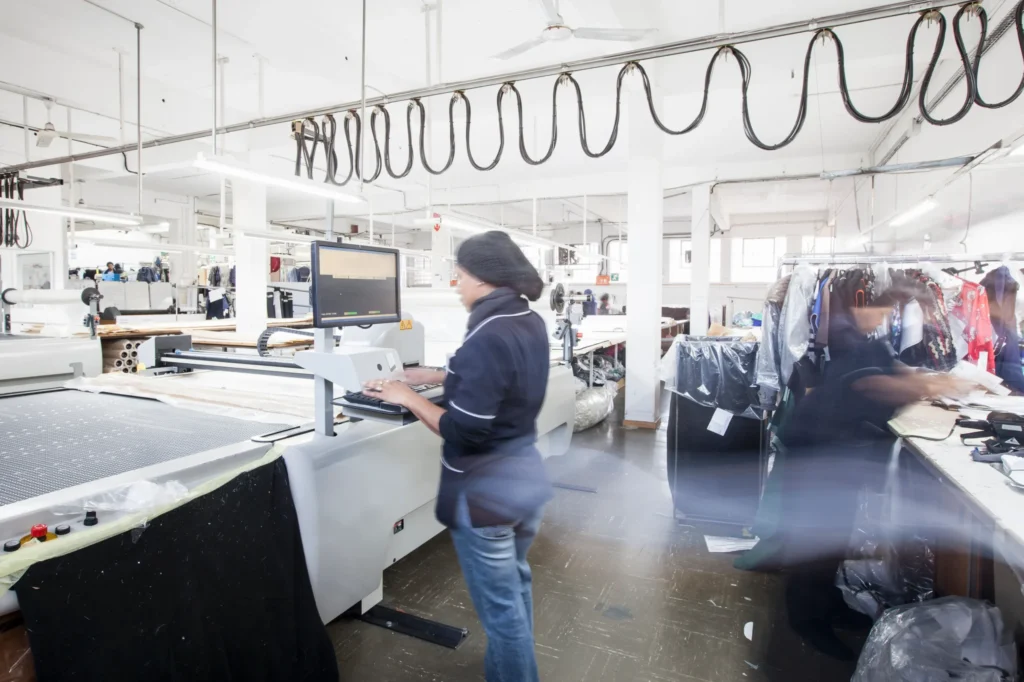Quality control in garment production involves checking every detail, from raw materials to finished garments. Regular inspections at each stage of production help catch issues before they affect the final product, ensuring consistency and reducing defects.
Role of a Clothing Manufacturer in Quality Control
A custom clothing manufacturer is crucial in maintaining quality control standards throughout the production cycle. Training workers, using the right tools, and monitoring production ensures that every garment meets your brand’s specifications.
Best Practices for Ensuring Quality in Clothing Manufacturing
Now that we understand the importance of quality control, it’s time to dive into the best practices to help you maintain the highest standards in your garment production. These practices minimize errors and help optimize your clothing manufacturing process for efficiency and sustainability.
1. Quality Control and Assurance
Establishing a robust quality assurance system is essential. This includes regular inspections, tracking raw materials, and maintaining records throughout the garment production process to ensure high standards and consistent quality.
2. Sustainable and Ethical Practices
Consumers are increasingly demanding sustainable clothing. To meet their expectations, prioritize using eco-friendly textiles, which is vital for sustainable fashion manufacturing, recycled materials, and reducing water consumption during garment manufacturing.
Furthermore, implementing ethical labour practices, such as fair wages and safe working conditions, strengthens your brand’s reputation and ensures that your business meets modern sustainability standards.
3. Streamlining Processes and Automation
Optimizing your production process through automation helps streamline workflows and minimize human error. Automation tools like ERP systems can track production progress, monitor inventory levels, and ensure the timely delivery of garments, reducing the risk of defects caused by delays or inefficiencies.
4. Focus on Textile Quality
Selecting the right textile choices is essential for new clothing lines. It is one of the most important decisions for maintaining the quality of your garment production. Ensure that the fabric meets durability standards and matches the design requirements. Use testing methods to evaluate production needs and raw materials for strength, color retention, and texture, which are essential in producing high-quality garments.
5. Implement Risk Management
Early detection of potential issues in the garment manufacturing process is vital. By implementing risk management strategies, you can identify areas that may lead to defects or delays in production. This proactive approach minimizes wastage and optimizes the smooth production process for apparel businesses. The production process improves the final product’s consistency.
6. Foster Strong Relationships with Reliable Suppliers
Building strong partnerships with trusted suppliers helps ensure that the raw materials you receive meet your quality standards for new clothing. Establishing clear communication with suppliers ensures materials’ consistency and quality control, which impacts the overall garment production process. Working with reliable suppliers also helps reduce lead times and avoid delays.
7. Choosing the Right Clothing Manufacturer
Selecting the right clothing manufacturer is crucial to achieving consistent garment production. Choose a manufacturer for your business who aligns with your quality standards and sustainable practices. Look for a clothing manufacturer with a proven track record of maintaining high-quality control standards and delivering on time.
How to Find the Right Clothing Manufacturer for Your Business


